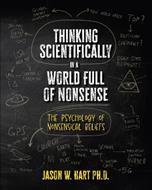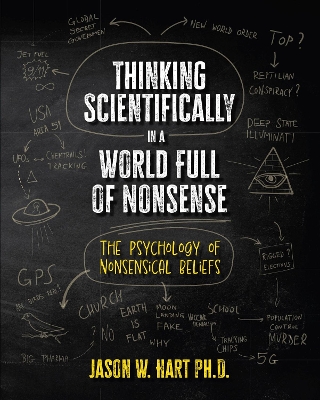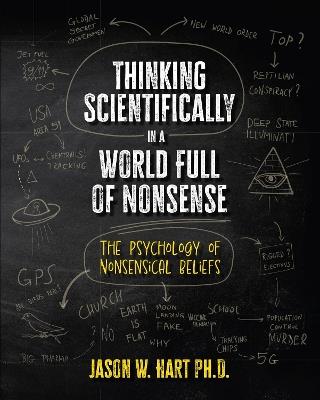Thinking Scientifically in a World Full of Nonsense: The Psychology of Nonsensical Beliefs
Thinking Scientifically in a World Full of Nonsense: The Psychology of Nonsensical Beliefs introduces students to a variety of unsubstantiated beliefs and misconceptions and explores the reasons why individuals may be inclined to believe them despite a lack of scientific evidence. It specifically examines the psychological underpinnings that foster these tendencies such as the allure of simple answers in the face of complex discussions. The book navigates the vast and complex landscapes of pseudoscience, paranormal claims, and science denialism. It begins by putting forth a foundational explanation of why nonsensical beliefs take root and flourish before addressing a spectrum of subjects including paranormal claims, pseudoscientific assertions, and the psychology behind conspiracy theories. Furthermore, it addresses opposition to scientifically established concepts like evolution and the outcomes of science denialism such as climate change skepticism. Designed to encourage critical thinking and healthy skepticism, Thinking Scientifically in a World Full of Nonsense is ideal for courses related to psychology, science education, critical thinking, and sociology.
-
Autore:
-
Editore:
-
Anno:2024
-
Rilegatura:Paperback / softback
-
Pagine:308 p.
Le schede prodotto sono aggiornate in conformità al Regolamento UE 988/2023. Laddove ci fossero taluni dati non disponibili per ragioni indipendenti da Feltrinelli, vi informiamo che stiamo compiendo ogni ragionevole sforzo per inserirli. Vi invitiamo a controllare periodicamente il sito www.lafeltrinelli.it per eventuali novità e aggiornamenti.
Per le vendite di prodotti da terze parti, ciascun venditore si assume la piena e diretta responsabilità per la commercializzazione del prodotto e per la sua conformità al Regolamento UE 988/2023, nonché alle normative nazionali ed europee vigenti.
Per informazioni sulla sicurezza dei prodotti, contattare productsafety@feltrinelli.it



